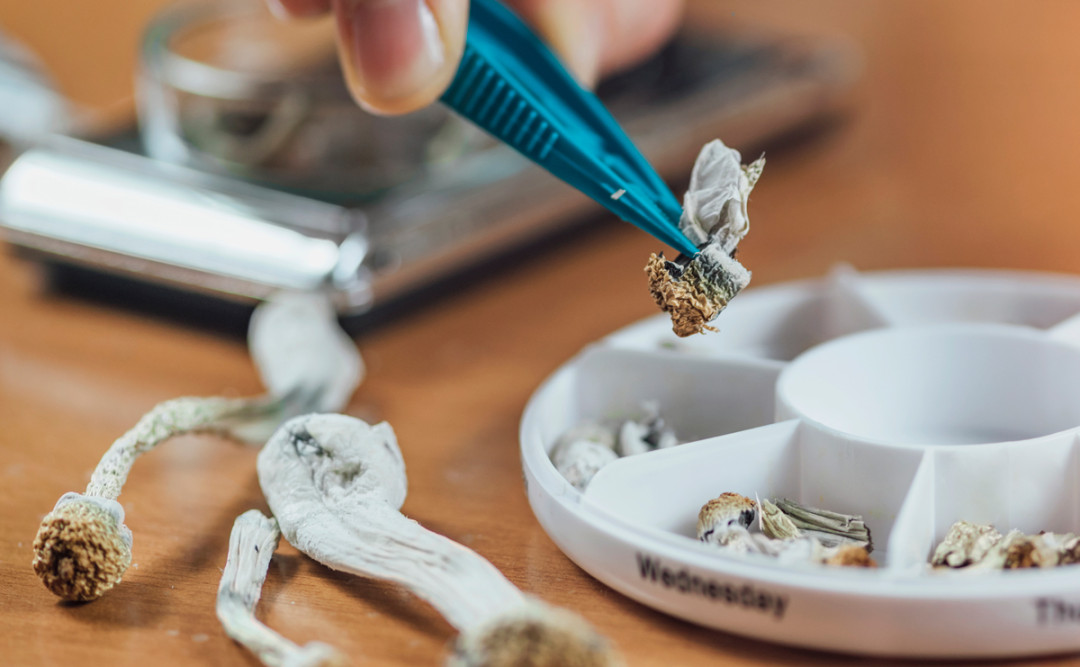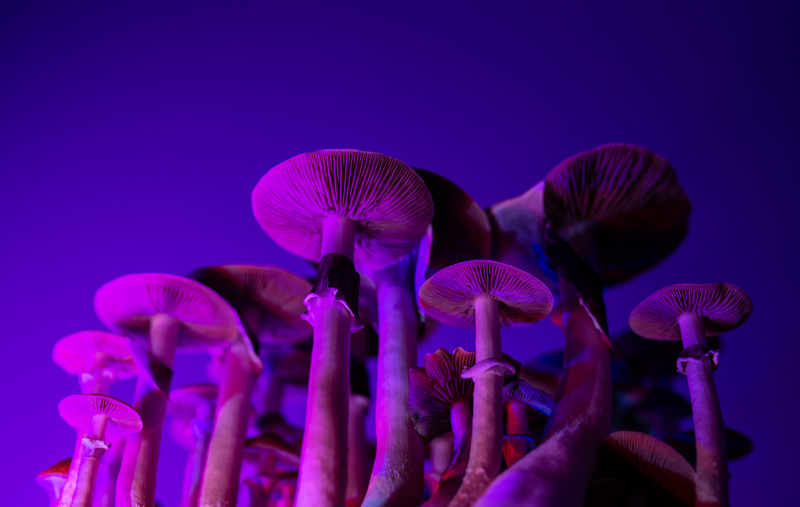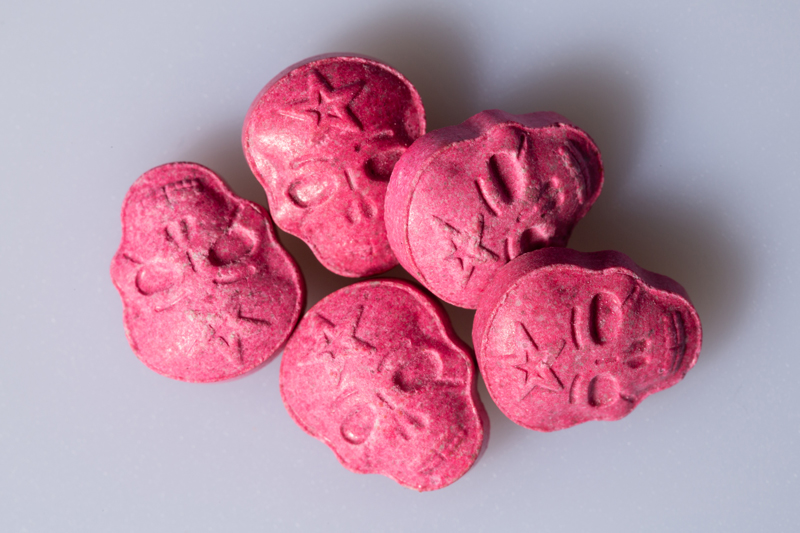What Australia's surprise MDMA and psilocybin move means

To say the recent decision by Australia’s Therapeutic Goods Administration to allow psilocybin and MDMA for prescription from July this year was a surprise isn’t the half of it. It’s only a couple of months since the idea was firmly rejected by the same agency.
Exactly what moved the TGA to reschedule the two drugs (from Schedule 9 in Australian’s Poison Standards to Schedule 8) to allow medical use outside trials is a matter of conjecture. Why it even considered the change is much more straightforward – there were applications for rescheduling and an energetic campaign behind them.
The organisation Mind Medicine Australia greeted the news with “a huge THANK YOU to the tens of thousands of people around Australia and internationally who have supported us in pursuing this rescheduling.”
“Mind Medicine Australia has been really active,” says Professor Marie Crowe, who is part of an impending trial of psilocybin for treatment-resistant depression at the University of Otago in Christchurch. “I'm a member and I get emails maybe once a week with letters to pass on to my Parliamentarian. I’m not in Australia so I don’t pass them on to anyone. But they’ve been really going for it for quite a while.”
There will be no free-for-all in July: the TGA placed strict conditions on who can prescribe and for what purpose. As outlined here by Australian commentator Rhys Cohen – the hurdles include the granting of specific Authorised Prescriber status, which likely requires the sign-off of not only the TGA, but the Royal Australian and New Zealand College of Psychiatrists. The College’s current stance on psychedelic therapy is that “Clinical use of psychedelic substances should only occur under research trial conditions”. Psychiatrists – and only psychiatrists will be eligible to prescribe – would be applying to do something their professional body opposes.
“Clinical use of psychedelic substances should only occur under research trial conditions.”
Royal Australian and New Zealand College of Psychiatrists' current stance on psychedelic therapy.
“There are three possible hurdles here with the approval process,” Cohen told Matters of Substance. “Psychiatrists will need to negotiate their Authorised Prescriber endorsement with their College or Human Research Ethics Committee of choice. So the College of Psychiatry doesn't have to be involved in the endorsement process. Then, the TGA will need to review and approve that endorsement, which for most other drugs would be somewhat of a formality, but the TGA might also take a firmer hand at the wheel. And then there are potential hurdles at the State/Territory level. We might require a few test cases before we know where the bottlenecks really are.”
What would it take for this happen in New Zealand? The answer is quite complicated. There isn’t a direct equivalent to Australia’s Poisons Standards here and under Section 29 of the Medicines Act, any medical practitioner authorised to prescribe can apply to obtain any unapproved medicine. If the medicine is a controlled drug, ministerial approval – typicallly delegated to Medsafe, our equivalent to the TGA – is required. This is the basis on which Alex Renton was able to be prescribed a CBD product before the current medicinal cannabis law in 2015.
The general principle of allowing the prescription controlled substances is also regulated by section 8 of Misuse of Drugs Act 1975, which is a list of exemptions, while the specific restrictions on Schedule 1 substances (including psilocybin and MDMA) are governed by section 22(1)(a) of Misuse of Drugs Act Regulations 1977, which requires ministerial approval – except for cocaine, morphine, opium, fentanyl and, since 2019, cannabis complying with the medicinal cannabis regulations.
Australia has a rough equivalent, the Special Access Scheme, under which medicinal cannabis prescribing is still handled (cannabis prescribing is much easier in New Zealand) and Cohen says he is “aware of several instances of the TGA approving access to psilocybin and MDMA through the SAS-B pathway. These approvals pre-date the scheduling decision.” The TGA has specifically ruled out the SAS route for any prescription scheme for MDMA or psilocybin.
So, although the administrative hurdles are high, prescribing MDMA or psilocybin is theoretically possible here – and Dr Suresh Muthukumaraswamy, director of the ongoing LSD microdosing trials at the Auckland School of Medicine, would like to see someone try.
“A medical doctor can apply for authorisation to prescribe these drugs for any condition they want,” says Muthukumaraswamy. “If a medical doctor wants to prescribe psilocybin for a patient, they could apply to import it under Section 29 and then write to the Minister for approval, and they could prescribe it. There's no legal barriers, it’s just technical, clinical and bureaucratic things.
“I don't think it's a problem. I think it's just no one’s bothered to do it. For all the complaints, I just don't think anyone's actually done the hard mahi and put the applications in. I look forward to someone trying it.”

Image of pink skull-shaped pressed pills
But some in the field are uncomfortable with the TGA’s decision that psychiatrists will be the only medical professionals allowed to prescribe psilocybin and MDMA.
“I'm thinking, why is this being pushed as a medical thing, when it's not necessarily medical?” says Crowe, who is on the psychotherapeutic side of the Otago trial.
Australian psychologist Dr Stephen Bright has expressed similar sentiments on Twitter, reiterating his statement last year that “The medical regulation system is not equipped to deal with psychedelics. A paradigm shift is required for them to be used as medicines. Until then, decriminalisation is the best first step.”
Canadian medicinal cannabis researcher Dr Paola Cubillos agreed in reply, drawing a parallel with cannabis, where “a premature roll out as a ‘medicine’ poses more problems than what it fixes – the lack of evidence to support most uses leaves patients in the hands of practitioners that operate in financially conflicted environments. Decrim should be the first step.”
“The medical regulation system is not equipped to deal with psychedelics. A paradigm shift is required for them to be used as medicines. Until then, decriminalisation is the best first step.”
Dr Stephen Bright, Australian psychologist
This may be where a sharp dividing line will be drawn between the two drugs in question. While there is a developing evidence base for the use of both in a therapeutic context – and MDMA is likely to be approved this year by the US FDA to treat PTSD – they are very different propositions. MDMA must be synthesised in a lab and fatal overdoses are certainly possible. Psilocybin-containing mushrooms grow in fields or can be cultivated in the suburbs and their toxicological risk (assuming someone hasn’t picked the wrong mushrooms) is negligible.
The social climate here may be reflecting this. Self-help through personal psilocybin use has been increasingly benignly framed in local news media in over the past year. And the New Zealand Drug Foundation is among the voices calling for decriminalisation of psilocybin mushrooms along the lines of several US jurisdictions.
Everyone agrees that some kind of regulation for therapeutic practice is necessary – patients on psychedelics are vulnerable and there are alarming stories of abusive practices in the US. But the history of psychedelics in psychiatry throws up some pretty grim examples too. An application for a trial under tikanga principles using psilocybin mushrooms to treat methamphetamine dependency is underway in New Zealand – would that necessarily be invalid if it wasn’t run by psychiatrists?
The other thing everyone in the field agrees on is that while the TGA’s decision may not make much difference to psychedelic research – pathways have become well-established in the past few years – it certainly won’t hurt either.
But how things unfold here outside the research environment – and whether the path of psilocybin ends up looking much more like that of cannabis than MDMA’s does – remains to be seen. And we probably won’t see much until there are louder and more organised voices for change.
Recent news

Beyond the bottle: Paddy, Guyon, and Lotta on life after alcohol
Well-known NZers share what it's like to live without alcohol in a culture that celebrates it at every turn

Funding boost and significant shift needed for health-based approach to drugs
A new paper sets out the Drug Foundation's vision for a health-based approach to drug harm

Expert Pharmac committee recommends funding for overdose reversal nasal spray
The expert committee has said funding for naloxone in the community should be a high priority

